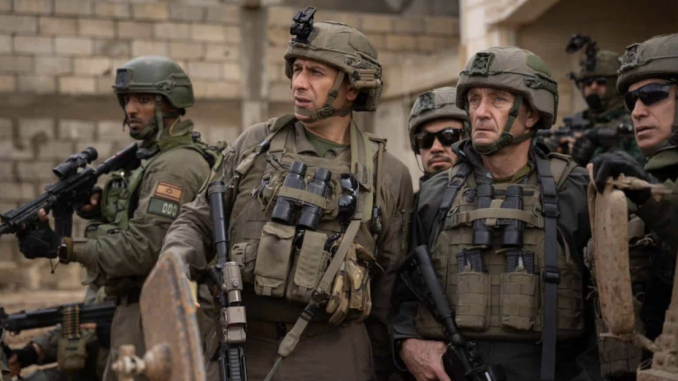By Seth Frantzman | November 21, 2024
 IDF Chief of the General Staff Lieutenant General Herzi Halevi (center-right) during a trip to southern Lebanon to meet with the 98th Division on November 20. (IDF photo)
IDF Chief of the General Staff Lieutenant General Herzi Halevi (center-right) during a trip to southern Lebanon to meet with the 98th Division on November 20. (IDF photo)
The Israel Defense Forces (IDF) executed several waves of airstrikes on Hezbollah sites in Beirut on November 20. The strikes occurred as Israeli forces progressed with several new limited ground operations near the border. In addition, Hezbollah’s new leader, Naim Qassem, vowed to respond to Israel for the killing of Hezbollah spokesperson Mohammad Afif on November 18.
Qassem was appointed Hezbollah’s secretary-general after the IDF eliminated his predecessor, Hassan Nasrallah, in September and eliminated Nasrallah’s likely successor, Hashem Safieddine, in October. Qassem gave a televised speech on November 20 in which he said Israel should expect Hezbollah to respond to what he called the “assassination” of Afif. He also stated that Hezbollah is prepared for a “long battle” with Israel. “We will remain on the battlefield and fight no matter how much the cost increases,” Qassem said, alluding to Hezbollah’s significant losses over the last two months of the war. Israel began Operation Northern Arrows on September 23, and the IDF estimates Hezbollah has lost more than 2,250 operatives.
The IDF has increasingly targeted Hezbollah in Beirut over the last two weeks. On November 21, the Israeli military said it conducted three rounds of strikes. “The strikes today were directed toward Hezbollah terrorist infrastructure, and are part of the IDF’s efforts to dismantle Hezbollah’s weapons production and storage capabilities. The IDF will continue to operate to degrade Hezbollah’s ability to carry out attacks against Israel,” the IDF stated. In addition, the Israeli Air Force targeted Hezbollah command centers overnight between November 20 and 21.
Israel Katz, Israel’s new defense minister, also announced new sanctions on Hezbollah-linked entities. “Our hands will reach anyone who supports terrorism—on every front and in every way,” he said on November 21. The sanctions target individuals and entities tied to the Al-Qard Al-Hassan Association, a Hezbollah-linked financial institution. The IDF conducted a wave of airstrikes on this organization’s offices in October, and the sanctions appear to be a follow-up strategy.
“These are customers who deposited significant amounts with the association, which directly finances the activities of the declared terrorist organization Hezbollah, including the purchase of weapons, granting loans and paying salaries to the organization’s operatives,” Katz’s office noted in a statement.
On the ground in southern Lebanon, IDF Chief of the General Staff Lieutenant General Herzi Halevi visited the 98th Division on November 20. The division has cleared terrorists from areas near the border that threaten the Israeli city of Kiryat Shmona and the other parts of northern Israel. Halevi traveled with the head of IDF Northern Command, Major General Ori Gordin, and the head of the Israeli Air Force, Major General Tomer Bar. Both Halevi and Gordin emphasized the importance Israel places on returning evacuated Israeli civilians to border communities.
In another sector of southern Lebanon closer to the coast, the IDF said it had identified two cases where Hezbollah rockets struck United Nations Interim Force In Lebanon (UNIFIL) posts on November 19. In one incident, rockets fired from Maaliyeh hit an area near Chamaa. In a second incident, the IDF said a “rocket was fired from the area of Deir Aames, one of many fired by Hezbollah in a barrage launched at Israel at 09:50 this morning.” The maps the IDF produced to show where Hezbollah launched the rockets indicate the group fired them from only around six miles north of the Israeli border.
The IDF announced that an Israeli officer in the reserves was killed in combat in southern Lebanon. Major Ze’ev Erlich was a 71-year-old researcher who entered Lebanon with the IDF to examine an archaeological site. A second soldier was also killed in the same clash with Hezbollah fighters who were hiding in the area. The incident raised questions about why an elderly reservist was permitted in the sector. Halevi appointed a team to “examine and strengthen operational discipline and military culture following the incident in which Maj (res.) Ze’ev Hanoch Jabo Erlich fell during combat in southern Lebanon,” the IDF said.



Leave a Reply
You must be logged in to post a comment.